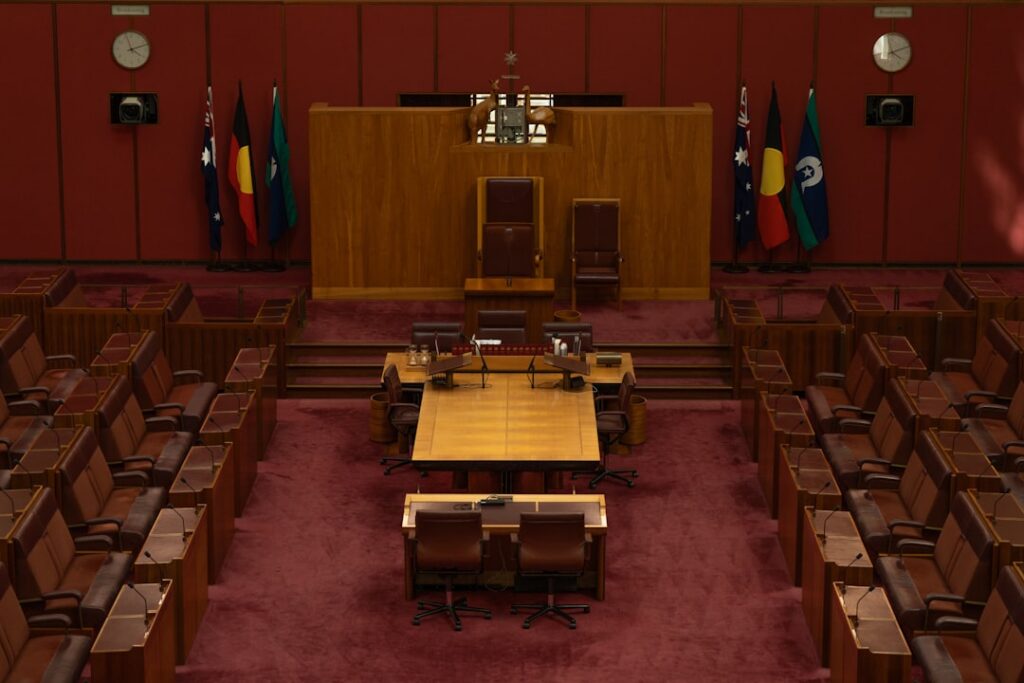Senate Votes to Reopen Government After Record Shutdown
In a historic move, the Senate has passed legislation to reopen the government, concluding a record-long shutdown that has affected millions of Americans. This decision comes after a surprising shift in party lines, with eight Democrats breaking away from their party’s stance to join Republicans in the vote. As the nation breathes a sigh of relief, the implications of this decision will resonate across various sectors. In this article, we will explore the details surrounding the Senate’s decision, the repercussions of the shutdown, and what lies ahead for both parties.
Quick Takeaways
- The Senate has successfully passed a bill to reopen the government.
- Eight Democrats joined Republicans, breaking party lines to pass the legislation.
- This shutdown was the longest in U.S. history, lasting several weeks.
- Public services and federal employees were severely impacted during the shutdown.
- Next steps involve negotiations on budget allocations and funding.
- Political analysts are debating who will receive credit for ending the shutdown.
- The House of Representatives will need to approve the Senate’s legislation.
- Future implications for bipartisan cooperation are uncertain.
The Context of the Shutdown
The recent government shutdown was initiated due to disagreements over budget allocations and funding priorities. The standoff lasted for weeks, impacting essential services and the livelihoods of federal employees.
Key Players in the Shutdown
Understanding the dynamics of the Senate and House leadership during the shutdown is crucial. Key figures, including the Senate Majority Leader and the Speaker of the House, played pivotal roles in the negotiations.
The Role of Bipartisanship
The decision by eight Democrats to join Republicans showcases a rare moment of bipartisanship in a highly polarized political climate. This move has sparked discussions on the future of cooperation between parties.
Public Reaction to the Shutdown
The public’s response to the shutdown was overwhelmingly negative, with many Americans expressing frustration over the political stalemate. Polls indicated a decline in approval ratings for both parties.
Impacts on Federal Employees
Federal employees endured significant hardships during the shutdown. Many were left without pay, leading to financial strain and uncertainty about their futures.
What Happens Next?
With the government reopened, the focus shifts to upcoming negotiations regarding budget allocations. Lawmakers will need to work together to establish funding for various programs and services.
Who Gets Credit for Ending the Shutdown?
The question of credit is a hot topic among political analysts. Some argue that the bipartisan effort was essential, while others believe that the Republican leadership will take the lion’s share of the recognition.
Future Implications for Government Operations
This shutdown highlights vulnerabilities in the government operations and the need for more robust mechanisms to prevent future shutdowns. Discussions on reforming the budget process may gain traction as a result.
Historical Context of Government Shutdowns
Government shutdowns are not new to American politics. Examining past shutdowns can provide insight into how political disagreements have evolved over the years.
Potential Legislative Changes
Post-shutdown, there may be calls for legislative changes to prevent similar occurrences in the future. Lawmakers might consider measures to ensure continuity of government operations.
The Role of Media in Reporting the Shutdown
Media coverage played a significant role in shaping public perception during the shutdown. The way news outlets reported on the events influenced the narrative surrounding the political standoff.
Conclusion: Lessons Learned
The recent Senate vote to reopen the government serves as a reminder of the challenges and complexities within the political landscape. The shutdown exposed the repercussions of political gridlock and the impact it has on everyday Americans. Moving forward, it is essential for lawmakers to seek collaborative solutions to prevent future shutdowns. The events that unfolded during this crisis should encourage a culture of bipartisanship and compromise, fostering a government that prioritizes the needs of its citizens. As discussions continue about funding and legislation, the hope is that both parties can learn from this experience, paving the way for a more cooperative and effective governance.
Photo by Irvin Zhang on Unsplash
